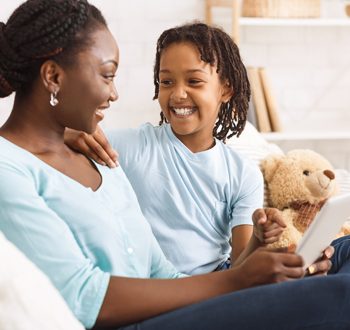
You have probably seen articles in the press recently about digital assistants like Alexa allegedly, listening to conversations. This is obviously a concern for adults but also teens and children who may use what are termed digital assistants. Digital assistants are a growing part of everyday life. These are better known by their titles, the most popular of these being Siri, Amazon Echo and Google Home. So, what exactly is a Digital Assistant and what do you need to be aware of as a parent when it comes to keeping your child safe? A digital assistant, sometimes called a smart speaker, is a piece of voice activated software that can carry out a range of tasks for you based on your command. You can ask a digital assistant questions relating to everything from the weather to recipe suggestions.
Essentially, digital assistants are designed to become intuitive over time based on the information you provide. The ultimate aim is that they will be able to predict the best possible match to your request. The more you use a digital assistant, the more exact the match and the assistant will become familiar with the things you like. Sounds very helpful doesn’t it? In an age of schedules and where time is at a premium a digital assistant can certainly be a help, but there are a few things to bear in mind, especially if your children see you using a digital assistant and want to join in.
As we mentioned earlier digital assistants will record the commands you ask them to carry out. This is so they can store a bank of common requests, understand your accent better and ultimately perform better the more you use it.
It’s important that you know that these requests are then stored on a remote server and it’s still unclear whether the data is then shared onto third parties for other purposes. If you’re not happy with this data being stored there is a way that you can delete the data. This will depend on which digital assistant you are using.
Once a digital assistant is powered on it will be listening for instruction. There have recently been media reports that a digital assistant was recording the conversations of a family and then that information was allegedly accessed by a third party.
Obviously, developments like this are of concern. Little is known about what happens to data that is passed to third parties where lots of digital devices are concerned. Hopefully, ongoing developments in data protection will be a step in the right direction when it comes to the management and protection of personal data transferred via technology. The most important thing to do if you are considering purchasing and using a digital assistant is to have an age appropriate conversation with your child about the fact that at the end of the day the digital assistant is a device that stores information and to exercise caution in the kind of requests they make via the assistant.
It is also important to know that there is a mute button that can be found either on the top or at the back of the device. Encourage all the family to regularly mute the device when it is not in use. It’s also a good idea to turn off the location settings and to place a password on the device to make sure that children are safe and are not able to do things like make purchases.
Remember there is no substitute for face to face communication and while technology can enhance our lives we need to exercise a degree of caution in relation to the information we share in the digital world and encourage and support our children to do the same.

